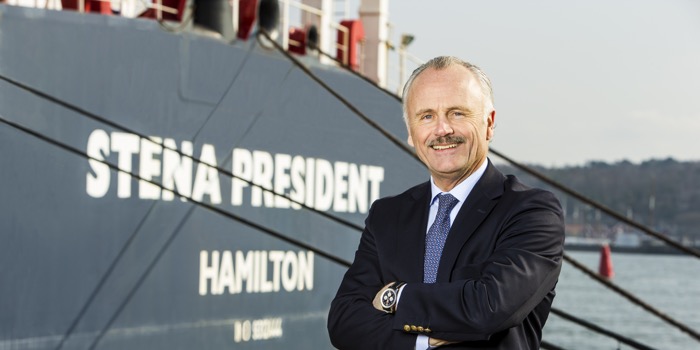Discriminating against veteran tankers flies in the face of facts, says Stena Bulk
Erik Hanell, Chief Executive of Stena Bulk & Kim Ullman, Chief Executive of sister company Concordia Maritime
Everyone in our business agrees that the quality of an oil tanker has nothing to do with its age. Yet, many oil companies restrict or hesitate to charter ships over 15 years of age. In our opinion, this approach increases the risk of accidents rather than preventing them, and it goes against the global trend for sustainability.
At Stena Bulk and Concordia Maritime, we appreciate that all companies in our industry do their utmost to avoid accidents and oil spills that historically have plagued our industry’s reputation.

Top-20 spills
However, it is not old age that stands out when you take a closer look at the data for the top-20 major oil spills since the [SS] Torrey Canyon (built 1959) in 1967.
No less than nine of the ships involved were under 10 years of age, and 13 of them had not yet reached the 15-year limit used by some major oil companies today.
It should also be noted that 19 of the 20 largest spills occurred before the year 2000, and that the positive downward trend in oil spills continues despite an overall increase in oil trading over the years.
This positive trend is also confirmed in the Oil Companies International Marine Forum’s Ship Inspection Report Programme, also known as SIRE, which is used by all oil companies.
Through SIRE, oil companies and tanker owners have increased the quality of their safety and maintenance work substantially.
No coincidence
The average number of observations per inspection has decreased significantly in our business since 2010. To us, this is not a coincidence.
Stena Bulk, Concordia Maritime and many of our competitors practise the philosophy of keeping meticulously maintained ships with professional crews.
This uncompromising attitude has resulted in several groundbreaking efficiency and safety solutions over the years. Some companies in the shipping industry have been active in their efforts to increase safety and decrease the number of incidents, near misses and accidents.
Their impeccable track records prove that an approach built on ship condition and quality assessments, such as maintenance standards, inspection results and CAP ratings, is the right way to ensure safe and sustainable oil transports.
To implement age restrictions will without doubt suboptimise the efforts. Yet age discrimination is a reality in our business, even though few would argue against that, for instance, a well-maintained, oil company-approved, 18-year-old tanker is no greater quality risk than an eight-year-old ship.
A potential cause for poor maintenance could be the financial consequences of an age restriction, resulting in lack of owner attention below the 15-year limit.
The environmental impact of premature scrapping of good tonnage is another negative factor, which counteracts society’s sustainability efforts, when investing for the future, in modern eco ships. It is not feasible to consider them “not fit for service” by the time they reach the age of 15 years. It is not caring for resources and it is not responsible towards the next generation.
From a fleet renewal point of view, we could also face decreased quality standards on new ships if they are being built for a 15-year lifespan.
Threat to safety
Our conclusion is that age discrimination is a direct threat to the safety improvements achieved jointly over time by the oil industry, classification societies and the tanker industry. It also jeopardises the willingness to invest in innovations that increase performance even further.
In a worst-case scenario, we will get a self-destructive environment where the only way to survive as a stand-alone business is to focus on short-term solutions and gains. This would move the industry away from the traditional business model, with ships that are built to last through several cycles.
Only the future will tell what the long-term consequences will be, but one thing is crystal clear: we will get a development that counteracts improvements rather than promoting the continuous progress that has taken us to where we are today. Needless to say, this a dangerous route to follow.
To us, the fact that some oil companies waive the age restrictions when it suits them business-wise are subtle acknowledgements that they also consider the rule as a feeble safety and quality instrument.
Rejecting discrimination
Our suggestion is that the oil industry once and for all replace random age discrimination and stick to the sound standards based on quality assessments of each individual ship.
This would mean that ships that meet all the well-founded and rigorous quality measures will continue to transport your oil efficiently and safely for several years to come. This also builds the mutual foundation for creating a sustainable tanker industry.
The question we would like to bring to the table is: What would it take for an oil company with more restrictions than the IMO requires to reconsider this unnecessary policy?
For more information visit www.stenabulk.com
20th May 2019























